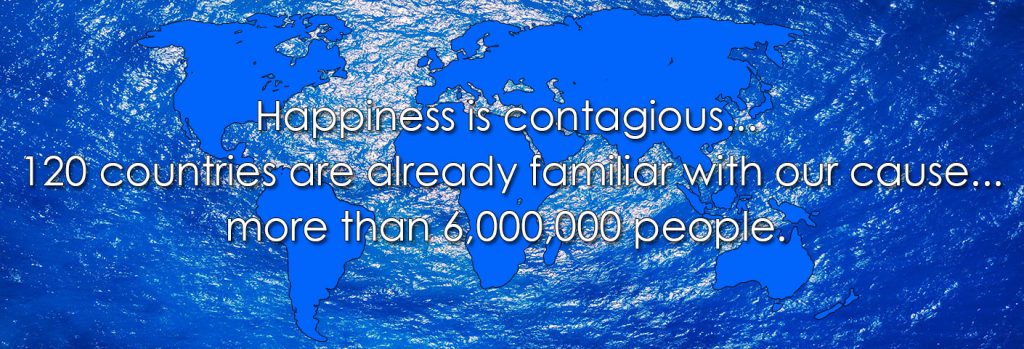
What does the right to happiness mean?
The Right to Happiness is the right to choose and live according to what makes us happy, by granting that same right to others. The community cannot impose on a human being the purpose of his existence or determine his happiness for him.
A State is not responsible for the happiness of its citizens, but it can be responsible for ensuring that each citizen can freely exercise his/her right to happiness.
The right to happiness already enshrined in the Constitution of 25 states
The right to happiness, both individual and collective, is enshrined in the founding texts or constitution of 25 countries: the United States of America, Brazil, Japan, South Korea, France, Haiti, Namibia, Seychelles, Niger, United Kingdom, Antigua and Barbuda, Belize, Egypt, Ghana, Liberia, Mongolia, Nicaragua, Nigeria, Pakistan, Swaziland, Turkey, Tuvalu, Vietnam, Italy and Bhutan, according to research conducted in the Constitute database.
The WLRH pleads for its inclusion in the Constitution of all countries
The European Parliament has refused our petition, which will be presented to it again in a few months.
Is it applied in everyday life?
From a legal point of view, 90 cases reviewed by the United States Supreme Court since 1821 have called for the « pursuit of happiness. »
From a practical point of view, each of us can answer that question.

The 7 billion definitions of happiness
There are more than 7 billion definitions because each of us has HIS/HER definition of happiness. No one can impose his/her vision of happiness.
Against happycracy
Currently, a global movement is speaking out against « happycracy » which tends to impose a unique model of happiness behaviors through politically correct, socially accepted beliefs mainly related to consumption. You have to be happy, dynamic, « connected » at all costs.
It's all in your head
Happiness is an emotional state of mind (not to be confused with well-being, satisfaction or pleasure). It results from brain chemistry, varying depending on the type of neurotransmitters we use individually to manage the different situations in our lives. These neurological chemical mechanisms are becoming more and more known thanks to scientific research, especially in medicine and neuroscience, including those of our partner, the Inner Mammal Institute of San Francisco, with whom we organized study days in Monaco and seminars for managers and the general public in Paris in 2018 and 2019.
Happiness is contagious
The Fowler/Christakis USA study confirmed the contagious nature of happiness on our loved ones and even to the friends of our friends.
March 20, International Happiness Day
U.N. Resolution 66/281 of 2012 establishes on March 20th International Day of Happiness for which we are publishing a promotional kit to inspire associations, schools, businesses and individuals (187 WLRH kits distributed in 2021).
A Minister of Happiness in the United Arab Emirates (UAE)

Minister of Happiness
United Arab Emirates
In 2016, the position of Minister of The State of Happiness was awarded to Ohoud Al-Roumi. Happiness therefore becomes the « number one priority » of the UAE and the Ministry of Happiness implements public policies creating « social well-being and satisfaction » of individuals with a national program of happiness and positivity,, declined in a charter,, with many concrete measures.
The UAE is positioning itself as pioneers in promoting happiness.
Only Venezuela had created a « vice-ministry for the supreme social happiness of the people », Bhutan for its part set up a tax incentive for companies respectful of the happiness of their employees
